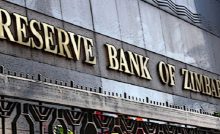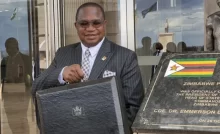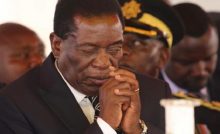Why the Zimbabwe Supreme Court could not endorse Chamisa as leader of MDC
The analysis of the relevant provisions of the constitution that I have articulated in addressing the grounds of appeal makes it abundantly clear that the second appellant’s ascent to the helm of the Party was fundamentally flawed by gross constitutional irregularities. To perpetuate that situation without appropriate correction would not only undermine the ethos and dictates of the constitution but would also infringe the rights of all the Party’s members to a constitutionally elected leadership. It would further operate to violate the founding values enunciated in s 3(1) of the National Constitution, to wit, the rule of law and its concomitant doctrine of legality as well as the principles of good governance.
In the final analysis, I take the view that the corrective intervention of this Court in the affairs of the Party is a matter of significant public importance, not only in relation to the Party and its members but also as regards the governance of political parties generally. It is necessary that the Court should deliver its definitive pronouncement on the legitimacy of the second appellant’s ascent to the presidency of the Party. It is further necessary to ensure that the leadership of the Party is constitutionally and lawfully ensconced. The imbroglio that the Party’s leadership has become entangled in may well be water under the bridge. But it is a bridge that, for the sake of the Party’s stature and credibility, needs to be correctly and systematically constructed. In short, notwithstanding the political mootness of this matter, it is imperative that there should be an authoritative determination of this appeal in the interests of justice.
Disposition
The essence and objective of the corrective measures to be implemented by the Party is to restore the status quo ante that prevailed before the irregular and unlawful appointments to the Party presidency took place. This would necessitate having to extend the time limit prescribed in the Party constitution apropos the convening of an Extra-Ordinary Congress to elect a new President following the demise of Dr Tsvangirai. It would also involve modifying the judgment a quo to conform with that purpose.
In terms of Article 9.21.1 of the Party constitution, the Deputy President assumes the role of Acting President upon the death of the President, pending the holding of an Extra-Ordinary Congress to elect a new President. Such Congress must be held no later than one year from the death of the former President. The power to convene an Extra-Ordinary Congress is ordinarily vested in the President by dint of Article 9.1.2.1. It follows that, by assuming the role of Acting President, the Deputy President is ipso jure equally empowered to convene any such Congress. By the same token, the National Chairperson, who is enjoined by Article 9.3.1(a) to perform the duties of the President’s Office in the event that both the President and the Deputy President are unable to perform their functions, must also be vested with the power to convene an Extra-Ordinary Congress.
As regards costs, there can be no doubt that this matter is of great public importance. Moreover, it was necessary that the issues raised herein be fully ventilated and satisfactorily resolved in the interests of all the parties affected. In these circumstances, it seems to me that the Court’s discretion on costs should be exercised so as to depart from the general rule that costs should follow the cause. I accordingly deem it just and proper that there should be no order as to costs in respect of this appeal as well as the proceedings a quo.
It is accordingly ordered as follows:
- The appeal be and is hereby dismissed with no order as to costs.
- The judgment of the court a quo be and is hereby confirmed, save for the deletion of paragraphs 4 and 5 of the operative order.
- The third respondent, in her capacity as the Acting President of the first appellant, be and is hereby ordered to convene an Extra-Ordinary Congress, within a period of three months from the date of this order, in order to elect a new President.
- In the event that the third respondent fails or is unable to comply with paragraph 3 above, the third appellant, in his capacity as the National Chairperson of the first appellant, be and is hereby ordered to convene the aforesaid Extra-Ordinary Congress, within a period of four months from the date of this order.
Click link below to receive free updates by whatsapp
https://chat.whatsapp.com/IjKB2tQriIv3s0CUZMVUPS
(545 VIEWS)
This post was last modified on April 4, 2020 11:22 am
Recent Posts
People’s version of the 2024 Zimbabwe mid-year budget review
Zimbabwe Finance Minister Mthuli Ncube presented his mid-year budget review on Thursday which, among other…
British minister says he knows nothing about detained CCC activists
Britain’s Minister for Justice Lord Ponsonby of Shulbrede yesterday told the House of Lords that…
List of goods whose duty will be payable in ZiG from next week
Finance Minister Mthuli Ncube says duty for a number of selected goods will be payable…
ZiG firms slightly as government announces measures to promote its use
Zimbabwe’s currency, the Zimbabwe Gold (ZiG), firmed slightly from 13.7852 yesterday to 13.7821 after the government…
Zimbabwe blacklists 51 contractors for diverting money to the blackmarket
Zimbabwe has blacklisted 51 contractors for diverting money paid to them by the government to…
US ambassador to Zimbabwe says I did not come here to play golf
United States ambassador to Zimbabwe Pamela Tremont says she did not come to Zimbabwe to…


